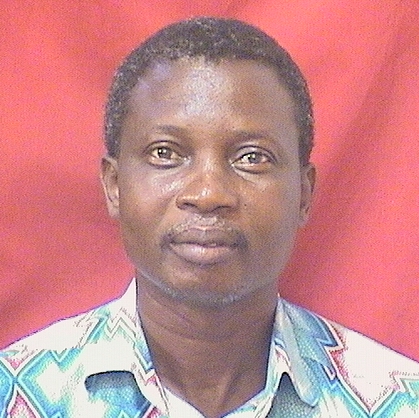Research Areas/Interests
Fluid Mechanics, Aerodynamics, Engineering System Design & Optimization
Development of parametric method for small aircraft design. (2008 - 2016)
-
Small aircraft in the form of personal or remote-controlled aircraft design could be approached in such a way as to derive optimum performance for any configuration that may be developed for a given mission. In practice, the aerodynamic performance is estimated from the coefficients obtained due to the chosen wing profile. However, it can be envisioned that every section of the configuration could contribute to the aerodynamic forces.
The research aimed at developing a technique or method that takes into account the contribution of all sections of the configuration with the objective of improving the accuracy of evaluating aircraft performance.
The concept of the method is built on object-oriented technique. Input parameters comprised of two kinds, namely, fixed and design parameters were considered. The output result in the geometry and performance characteristics of the aircraft. The performance is modelled as an integral function over the surface and results in Lift and Drag forces.
- Development of Lift-Tipping mechanism for small tricycle truck for Municipal waste collection. (2008 – date)
A number of small waste collection trucks such as tricycles are in use in a number of developing countries. The use of such technology has been popular in Ghana. The research considers the design of a lift-tipping mechanism for small solid waste collection trucks being used by Zoomlion Ghana Limited. The lift-tipping mechanism is developed from a five-bar mechanism with one degree of freedom. The mechanism is modelled and simulated using Solid Edge software as the first step. Results of the simulation show that a height of 70% of the length of the lifting bar could be attained and a tilt angle of more than 40o could be achieved. The actuation of the mechanism could be achieved by employing a power screw, hydraulic or pneumatic actuators, and rack and pinion combinations. This mechanism will improve the operation of the collection truck. The system had since been built and tested in the laboratory. Weight optimization and the system were carried out as also the friction effect of the waste. It is expected that a field test of the tricycle truck fitted with the lift-tipping mechanism will be undertaken.
- Development of mechanized ‘Kente’ weaving loom for rural industry. (2011 – Date)
‘Kente’ is a celebrated cloth in Ghana that is produced in narrow strips between 8.0 cm and 15.0 cm. The art of weaving ‘kente’ started more than centuries ago and has since been hand woven. It is, as of now, produced with the same traditional loom. The process is very laborious and time-consuming taking about 14 days for the simplest (single weave) 1.5 m by 2.4 m and 40 days for some specific designs with experienced weavers. The aim of this research is to develop a mechanized weaving machine that is expected to enhance the ‘kente’ weaving process and promote the industry. The process involves three motions that are orthogonal and periodic. The system developed used electric motors, mechanical linkages and mechanisms, and electronic controls. The prototype is under construction.
- Concentrated Solar Energy for Africa (CSP4Africa) Project. (2012 – 2016)
The project/research seeks to develop a low-cost Concentrated Solar Power (CSP) technology for the sub-region. It was an Africa Union-funded project/research undertaken by 2iE of Ouagadougou in partnership with the Energy Centre of KNUST. The project duration was three years starting from March 2012. I was a project team member from KNUST. I contributed to the design and manufacturing of the developed multifaceted heliostat and the implementation of the component of the project in Ghana. Contributed to the design, construction, and installation of a heliostat at Wa project site.
- Plasma Gasification for Municipal Solid Waste Treatment. (2010 – Date)
Plasma gasification is the process of converting matter into gas in an oxygen-starved environment to decompose waste material into its basic molecular structure. Plasma gasification does not combust the waste as incinerators do. It converts the organic waste into a fuel gas that still contains all the chemical and heat energy from the waste. It converts the inorganic waste into inert vitrified glass. The plasma reactor does not discriminate between types of waste. It can process any type of waste.
A potential solution to waste management in Ghana considering complex waste generation without sorting is Plasma gasification, which is environmentally friendly and has the advantage of converting solid waste into useful by-products. Also, the syngas produced could be used in energy generation.
The initial stage of the research was the assessment of the municipal solid waste generation in the country. This was followed by setting up experimental plasma gasification reactor and testing. Upon testing, the improvised plasma torch used posed challenges and is currently being reviewed.
- Oil Spill simulation of Marine environment of Ghana (2015 –Date)
Ghana has started production of petroleum in commercial quantity and it is offshore production. This poses a danger to the marine and coaster environment in case of an accident resulting in a major oil spill. The research seeks to provide a simulation package that will help to mitigate the impact of damage and also provide guidance in managing such a situation.
One Ph.D. Candidate graduated as a result of this research.
- Bast Fibre Research Group (2019 – Date)
Bast fibre research group is located in the Department of Biochemistry and Biotechnology, College of Science, KNUST. The aim is to conduct research and development of bast fibre crops in Ghana. There are a number of indigenous bast fibre species found in Ghana which require investigation and the group has been doing such. My role is to support the research in investigating the engineering properties and characterization of the various fibre components and also research into possible processing facilities.
A tensile testing machine, Tech Stress TS50, is developed to support the research.

